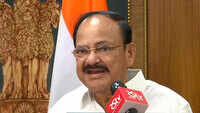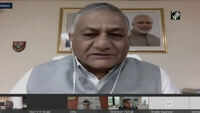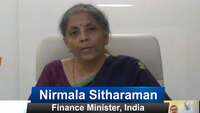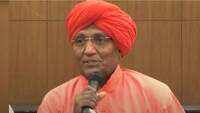
NEW DELHI: Riled by repeated breach of promises by the Centre and States to reduce governmental litigation, the Supreme Court on Friday said the main reason for explosion of litigation in SC and HCs is the bureaucratic reluctance to take responsibility for deciding not to file appeal.
Deciding a 44-year-old litigation between a government body and tax department, a bench of Justices Sanjay Kishan Kaul and Indu Malhotra said it should be the government's aim to do justice to people and not to win cases. "The Indian legal system is reeling under a docket explosion. The Government and public authorities are active contributories to this deluge," it said.
The bench cited famous lawyer Nani Palkhivala's letter to Soli Sorabjee on his appointment as attorney general in 1989 saying " the greatest glory of the AG is not to win cases for the government but to ensure that justice is done to people".
Writing two post-scripts in the judgment on mechanism needed to reduce general government litigation and tax appeals, Justice Kaul said, "One of the main impediments to such a resolution, plainly speaking, is that the bureaucrats are reluctant to accept responsibility of taking such decisions, apprehending that at some future date their decision may be called into question and they may face consequences post retirement."
"In order to make the system function effectively, it may be appropriate to have a Committee of legal experts presided by a retired Judge to give their imprimatur to the settlement so that such apprehensions do not come in the way of arriving at a settlement. It is our pious hope that a serious thought would be given to the aspect of dispute resolution amicably, more so in the post-Covid period," he said.
Justices Kaul and Malhotra said , "One of the largest areas of litigation for the Government is taxation matters. The petition rate of the tax department before the Supreme Court is at 87%. So, the question is can something be done about it? In our opinion, a vibrant system of Advance Ruling can go a long way in reducing taxation litigation. This is not only true of these kinds of disputes but even disputes between the taxation department and private persons, who are more than willing to comply with the law of the land but find some ambiguity."
"Instead of first filing a return and then facing consequences from the Department because of a different perception which the Department may have, an Advance Ruling System can facilitate not only such a resolution, but also avoid the tiers of litigation which such cases go through as in the present case. In fact, before further discussing this Advance Ruling System, we can unhesitatingly say that, at least, for Central Public Sector Enterprises and Government authorities, there would be no question of taking this matter further once an Advance Ruling is delivered, and even in case of private persons, the scope of any further challenge is completely narrowed down," the bench said.
The bench said, "We, thus, consider it appropriate to recommend to the Central Government to consider the efficacy of the advance tax ruling system and make it more comprehensive as a tool for settlement of disputes rather than battling it through different tiers, whether private or public sectors are involved. A council for Advance Tax Ruling based on the Swedish model and the New Zealand system may be a possible way forward."
Deciding a 44-year-old litigation between a government body and tax department, a bench of Justices Sanjay Kishan Kaul and Indu Malhotra said it should be the government's aim to do justice to people and not to win cases. "The Indian legal system is reeling under a docket explosion. The Government and public authorities are active contributories to this deluge," it said.
The bench cited famous lawyer Nani Palkhivala's letter to Soli Sorabjee on his appointment as attorney general in 1989 saying " the greatest glory of the AG is not to win cases for the government but to ensure that justice is done to people".
Writing two post-scripts in the judgment on mechanism needed to reduce general government litigation and tax appeals, Justice Kaul said, "One of the main impediments to such a resolution, plainly speaking, is that the bureaucrats are reluctant to accept responsibility of taking such decisions, apprehending that at some future date their decision may be called into question and they may face consequences post retirement."
"In order to make the system function effectively, it may be appropriate to have a Committee of legal experts presided by a retired Judge to give their imprimatur to the settlement so that such apprehensions do not come in the way of arriving at a settlement. It is our pious hope that a serious thought would be given to the aspect of dispute resolution amicably, more so in the post-Covid period," he said.
Justices Kaul and Malhotra said , "One of the largest areas of litigation for the Government is taxation matters. The petition rate of the tax department before the Supreme Court is at 87%. So, the question is can something be done about it? In our opinion, a vibrant system of Advance Ruling can go a long way in reducing taxation litigation. This is not only true of these kinds of disputes but even disputes between the taxation department and private persons, who are more than willing to comply with the law of the land but find some ambiguity."
"Instead of first filing a return and then facing consequences from the Department because of a different perception which the Department may have, an Advance Ruling System can facilitate not only such a resolution, but also avoid the tiers of litigation which such cases go through as in the present case. In fact, before further discussing this Advance Ruling System, we can unhesitatingly say that, at least, for Central Public Sector Enterprises and Government authorities, there would be no question of taking this matter further once an Advance Ruling is delivered, and even in case of private persons, the scope of any further challenge is completely narrowed down," the bench said.
The bench said, "We, thus, consider it appropriate to recommend to the Central Government to consider the efficacy of the advance tax ruling system and make it more comprehensive as a tool for settlement of disputes rather than battling it through different tiers, whether private or public sectors are involved. A council for Advance Tax Ruling based on the Swedish model and the New Zealand system may be a possible way forward."
Download
The Times of India News App for Latest India News

Coronavirus outbreak
Trending Topics
LATEST VIDEOS
India
 NEP focuses on value-based education, says VP Naidu
NEP focuses on value-based education, says VP Naidu  Road infra, construction industry biggest ingredient to spur economy: MoS VK Singh
Road infra, construction industry biggest ingredient to spur economy: MoS VK Singh  Jharkhand CM Hemant Soren holds reviews meeting with tribal regional sub-plan executive committee
Jharkhand CM Hemant Soren holds reviews meeting with tribal regional sub-plan executive committee  J&K: Police recover stolen mobile phones worth Rs 26 lakh in Srinagar
J&K: Police recover stolen mobile phones worth Rs 26 lakh in Srinagar  Atmanirbhar Bharat will strengthen India globally: FM Nirmala Sitharaman
Atmanirbhar Bharat will strengthen India globally: FM Nirmala Sitharaman  Social activist Swami Agnivesh passes away at 80
Social activist Swami Agnivesh passes away at 80
More from TOI
Navbharat Times
Featured Today in Travel
Quick Links
Coronavirus in MumbaiCoronavirus in KolkataCoronavirus in HyderabadCoronavirus in DelhiCoronavirus in BangaloreCoronavirus symptomsCoronavirus in IndiaWhat is CoronavirusCoronavirus NewsSolar EclipseNPRWhat is NRCCAB BillCAB and NRCRTI BillPodcast newsLok SabhaShiv SenaYSRCPCongressBJP newsUIDAIIndian ArmyISRO newsSupreme Court
Get the app



